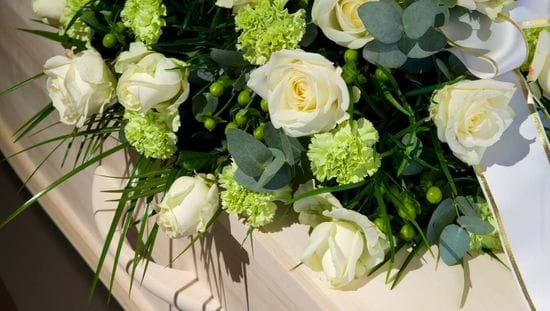Useful Information
When a Death Occurs
Whether a death occurs at home, in hospital, or at a residential home, there are many unfamiliar tasks which must be carried out. Bearing in mind that grief and anxiety will weigh heavily upon you during this difficult time, our professional team provides care, advice and guidance. Our funeral directors will answer any questions you have, prepare you and your family for any tasks that need to be completed, and deliver any requests you have for the funeral.
|
At Home
As soon as possible, inform your doctor (or your doctor's practice) that the death has occurred. The doctor will produce a Notification of Death when they visit the house, or alternatively, they may request that you visit the surgery to collect the certificate at a convenient time.
This Notification of Death will then need to be taken to the Registrars. If the doctor is unable, for any reason, to complete the medical certificate then the death will be referred to the coroner. |
At a Nursing or Residential Home
This is likely to have taken place with your permission by the Senior in Charge, Warden or Matron, who will be able to advise you of the whereabouts of the Notification of Death, which must also be taken to the Registrars.
|
At a Hospital
When the death occurs in a hospital, the procedure is very similar. The nursing staff or the Administrative Officer will advise you when and from where to collect the Notification of Death. This will have been completed by only the hospital doctors and not by the GP.
|
|
At Home
As soon as possible, inform your doctor (or your doctor's practice) that the death has occurred. The doctor will produce a Notification of Death when they visit the house, or alternatively, they may request that you visit the surgery to collect the certificate at a convenient time.
This Notification of Death will then need to be taken to the Registrars. If the doctor is unable, for any reason, to complete the medical certificate then the death will be referred to the coroner. |
|
At a Nursing or Residential Home
This is likely to have taken place with your permission by the Senior in Charge, Warden or Matron, who will be able to advise you of the whereabouts of the Notification of Death, which must also be taken to the Registrars.
|
|
At a Hospital
When the death occurs in a hospital, the procedure is very similar. The nursing staff or the Administrative Officer will advise you when and from where to collect the Notification of Death. This will have been completed by only the hospital doctors and not by the GP.
|
Registration
A death must be registered by law in the district in which the death occurred. As your funeral director, we will be able to advise you as to the whereabouts of the relevant office and can advise on their hours of attendance and the procedure required.
Under normal circumstances, the notifications of death should be taken to the registrar with, if possible, the deceased's medical card. The registrar will then issue the death certificate. The registrar will need to know the following details about the person who has died:
Under normal circumstances, the notifications of death should be taken to the registrar with, if possible, the deceased's medical card. The registrar will then issue the death certificate. The registrar will need to know the following details about the person who has died:
- Full Name
- Date and Place of Death
- Date and Place of Birth
- Occupation
- Home Address
- If Married, Date of Birth of the Surviving Spouse
- If the Deceased Was in Receipt of a Pension or Allowance from Public Funds
- Medical Certificate Showing the Cause of Death
- Birth Certificate
- Marriage Certificate (If Applicable)
Who Registers a Death?
A death may be registered by:
- Any Relative of the Deceased
- Any Person Who Was Present at the Time of Death
- The Occupier of the House Where the Death Occurred
- The Person Arranging the Funeral (but Not the Funeral Director)

|
Jewellery and Personal Effects
If any jewellery is to be removed or replaced before the funeral, it is vital that you inform us beforehand. Once the coffin or casket is left at the funeral home, we are unable to make any alterations. Additionally, you may have certain wishes with regard to how the deceased is dressed, perhaps in a favourite suit or a dressing gown, and we are happy to follow all instructions.
|
Useful Information
We have an experienced dedicated team and offer a fast response 24 hour a day service, and are available to answer any questions or give any advice you may need.